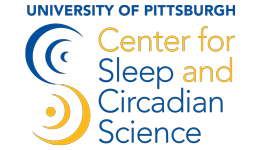Healthy Lifestyle Study for Dementia Caregivers
STUDY BASICS
Do you provide unpaid care to someone with dementia for at least 15 hours per week (at home or during visits to an assisted-living facility or nursing home)? Are you age 60 or older? If so, you may be able to participate in a research study to learn new ways of engaging in a healthy lifestyle. This study involves 9 visits that can be done by phone or online. Compensation is provided.
STUDY PURPOSE
Caregivers play a vital support role for people with dementia, but the stress of caregiving can lead to an increased risk of depression. The purpose of this research study is to evaluate a novel approach to potentially improve the wellbeing of caregivers. Researchers hope their findings lead to better ways to help older adults who act as caregivers in the future.
AGE: 60 and up
GENDER: M/F
VISITS: 9 sessions
DURATION: 9 weeks
LOCATION:
Online and/or by phone
COULD THIS STUDY BE RIGHT FOR YOU?
• Ages 60 and up
• Currently provide unpaid care to someone with dementia for at least 15 hours per week (includes care provided at home or care provided when visiting an assisted-living facility or nursing home)
COMPENSATION:
Up to $60
WHAT PARTICIPANTS CAN EXPECT
Participation involves nine 40-minute sessions (about one per week) over up to nine weeks. All sessions are done by phone or online by videoconference. Participants will be asked to use a daily diary to monitor their sleep behaviors, share their information with a support coach, and learn new ways of engaging in a healthy lifestyle.
IRB: STUDY19090068: Behavioral activation in the morning (BAM) for dementia caregivers (dCGs)
MEET THE RESEARCHER
Stephen Smagula, PhD, is an Assistant Professor in Psychiatry at the University of Pittsburgh. A graduate of Lafayette College, Columbia University, and the University of Pittsburgh, Dr. Smagula’s research interests include clarifying how sleep-wake behaviors influence the biological mechanisms of depression. He uses activity tracking to better understand the sleep-wake patterns relevant to mood.


